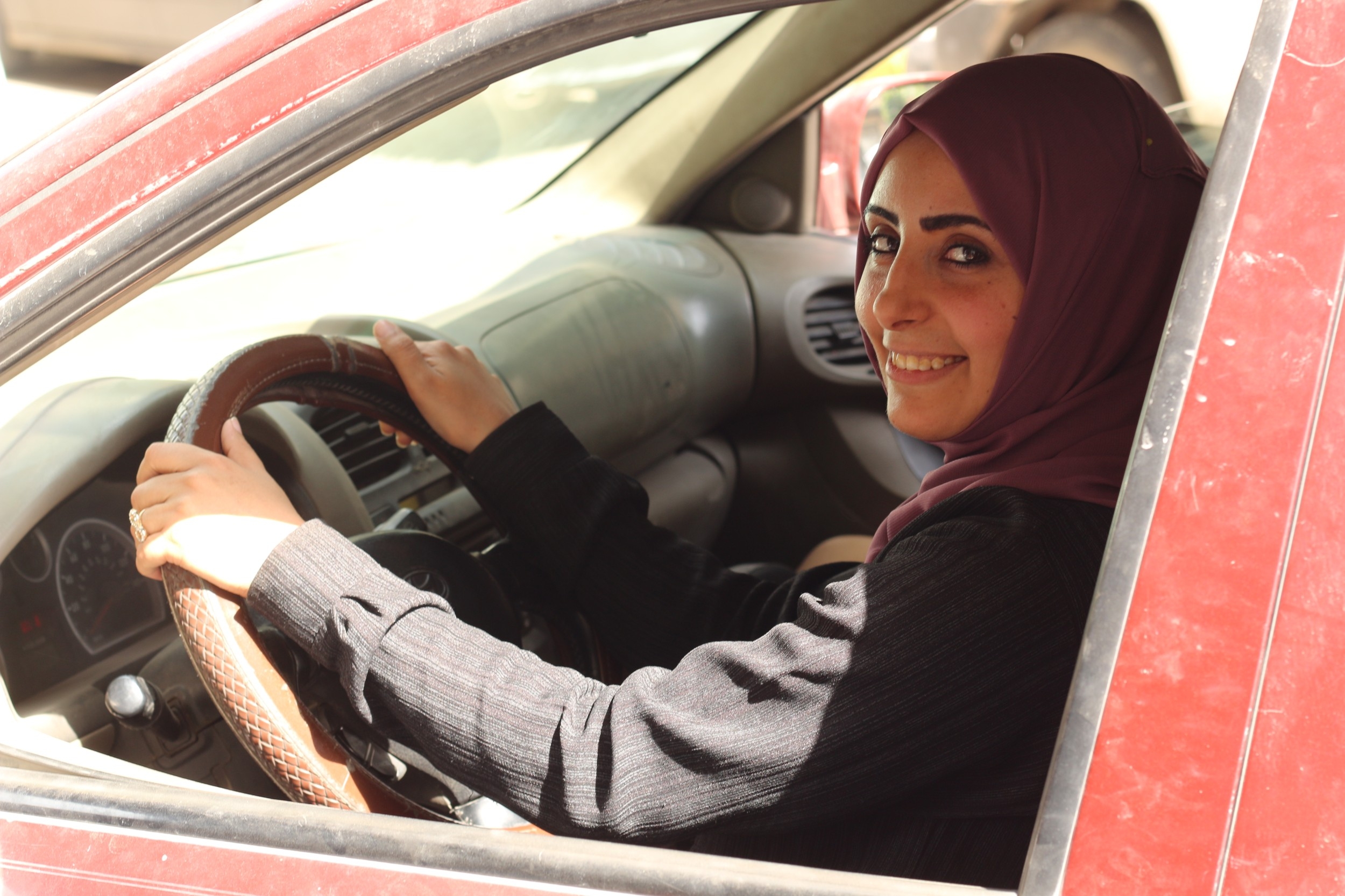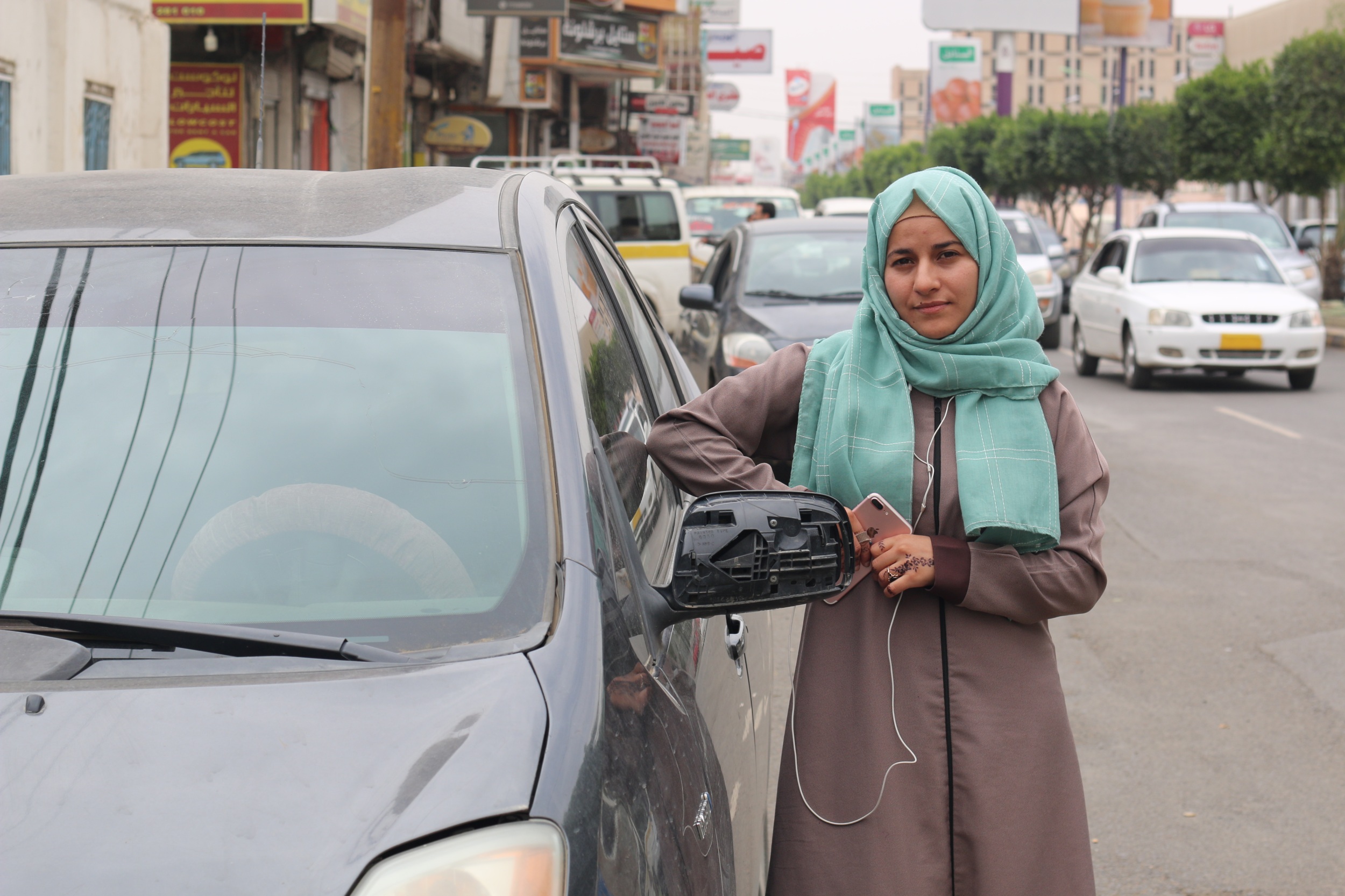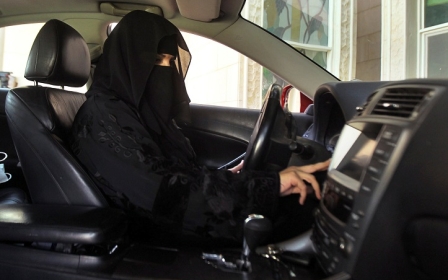Full steam ahead as more Yemeni women take the wheel

Yemenis have grown used to the chaos in Sanaa's traffic-jammed streets. Cars frequently backed up in long lines, competing with an ever-increasing number of taxis.
In the midst of gridlock, traffic police stop drivers, asking to see licences and handing out fines as congestion grows and horns blare in frustration.
In the past few years, however, a new sight has become more and more common: women behind the wheel.
Across Sanaa, and in most cities around the country, women have increasingly taken up driving, despite harassment from passersby, motorcyclists and fellow drivers.
Attitudes have been slowly changing since the uprising that began in 2011 - and has since made way for a devastating war - as women have openly defied family and societal restrictions and criticism to gain greater mobility and autonomy.
New MEE newsletter: Jerusalem Dispatch
Sign up to get the latest insights and analysis on Israel-Palestine, alongside Turkey Unpacked and other MEE newsletters
Newfound independence
Until six months ago, Abeer al-Bareda, 25, used public transportation to get to meetings with clients of her graphic design company.
But she faced multiple hurdles, including sexual harassment and theft, not to mention the many hours lost to slow commuting.
"Last year, a biker stole my bag and I couldn't defend myself because I was walking in the street," she told Middle East Eye. "I used to face a lot of sexual harassment on public transportation."
For Bareda, cars are "a safer way for women to move around".
"Even though all women might face some sort of sexual harassment, the ones who are in their own cars suffer less, since they can just shut their car windows and ignore any bad words or negative behaviour," she said.
Bareda believes that as the number of women entering the workforce or starting their own companies has increased in Yemen, so too has their need for mobility.
"They've been eager to drive since it helps them pursue their work," she said.
Bareda bought a car six months ago and asked a friend to teach her how to drive. These days, she says she can move far more easily to offer her services to prospective customers in different parts of Sanaa.
Kawthar al-Thubhani, 35, has been on the road for more than a decade, but it hasn't always been easy.
"Before 2011, it was very difficult to drive, as both men and women used to get into rows with women drivers, but nowadays there are many women who drive so it's become easier," Thubhani told MEE.
"Women have only recently started to defend their freedom and rights, and driving is a basic right all women should get."
Tradition over law
Fadhl Mohammed, a social expert and sociology professor at Taiz University, explained that while Yemeni law had never prevented women from obtaining driving licences and operating cars, social norms had long been the main barrier to women sitting behind the wheel in large numbers.
'I tried to persuade those who were opposed to it, but they did not understand me so I ignored them'
- Abeer al-Bareda, graphic designer
"In a conservative society like Yemen, social traditions are stronger than laws, so only a few women drove then, when society criticised them strongly," Mohammed told MEE.
While the public perception of female drivers has relaxed over time, some religious figures, like Sanaa-based imam Ahmed al-Nabhi, claim that these women are disobeying Islam.
"Islam prevents women from going outside alone, and that means women driving cars is not permitted, since women can be hassled if they drive by themselves," Nabhi told MEE.
"It's in the women's interest, so that they're not bothered by anyone. So women should obey Islam and enjoy their lives within the permitted boundaries."
Thubhani and Bareda said they were keenly aware of the views shared by Nabhi and others, but that they remained undeterred.
"Some people aren't educated enough, so sometimes we hear some bad words, and some nasty people try to harass us in the streets, but we ignore that kind of behaviour," Thubhani said.
She said she felt lucky to have family members who stood by her and supported her efforts to get about independently.
Bareda, meanwhile, said she faced criticism from relatives, but has not given in to their pressure.
"Some members of the family encouraged me to drive and others criticised me," she said. "I tried to persuade those who were opposed to it, but they didn't understand me so I ignored them."
Unexpected perks
Both Bareda and Thubhani said there were unforeseen benefits to being some of the few women on the road, including less scrutiny from traffic police and fellow drivers.
"Many women don't know the rules of the road, but the traffic officers cooperate with women and they don't stop us to check our driving licences," Bareda said.
Once, she said, she accidentally hit a motorcyclist, yet a passerby sided with her against the cyclist. Even so, she gave the motorcycle driver her father's contact details in case he needed treatment.
Thubhani said she had never been stopped by police - nor by soldiers at checkpoints - since she started driving 11 years ago.
Amin Obadi, a 39-year old traffic officer in Sanaa, told MEE that he had definitely noticed an increase in women drivers over the past three years, not only during the daytime, but also at night.
He confirmed that he was less likely to pull them over out of respect for social mores regarding interactions between unrelated men and women.
"Stopping a woman to check her driving licence would be a shameful thing to do," he told MEE. "We cooperate with them and hope that the beginners go and learn in driving schools."
Obadi said he was supportive of more women being behind the wheel, emphasising that Yemeni law did not prohibit them driving.
"It is good that women depend on themselves to drive instead of waiting for a man to take them to their work or anywhere else," the policeman said.
Mohammed, the Taiz University professor, said he saw a clear connection between the 2011 uprising and women's increased presence in the public sphere, even as the political and humanitarian circumstances in the country have become more dire after years of war.
"The revolution of 2011 helped women defend their rights - we saw thousands of women take to the streets to demand their rights, including Nobel peace prize laureate Tawakkol Karman," he said.
"Women drivers are only one facet of developments that have happened for Yemeni women since 2011, as women have become more aware about their rights and defend them."
Middle East Eye delivers independent and unrivalled coverage and analysis of the Middle East, North Africa and beyond. To learn more about republishing this content and the associated fees, please fill out this form. More about MEE can be found here.





